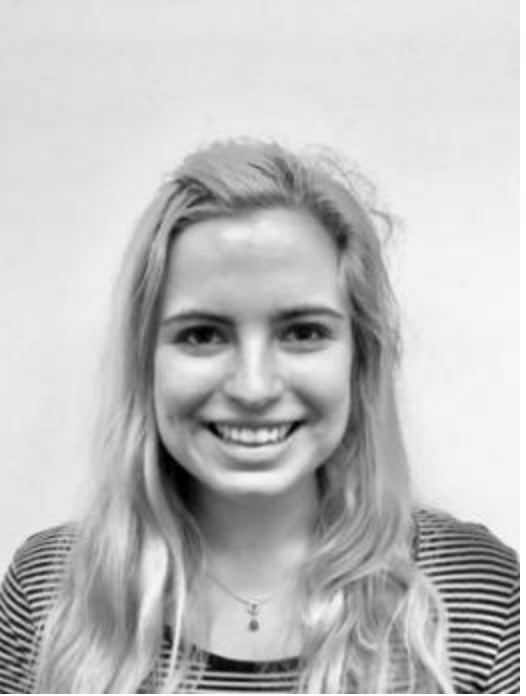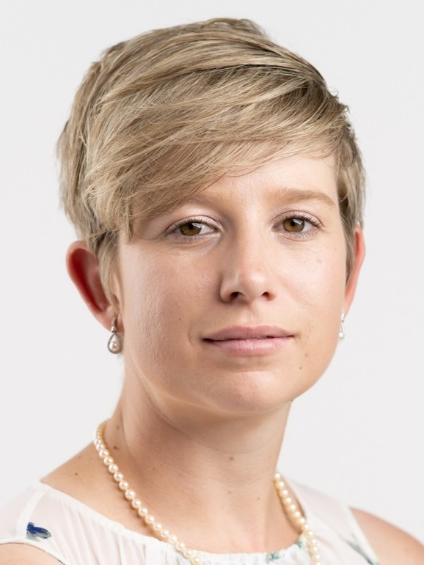Date: Wednesday 26 April 2023
Time:
9:00am - 10:40am London,
4:00pm - 5:40pm Shanghai,
6:00pm - 7:40pm Sydney
Zoom Meeting ID: 886 9804 1736
Zoom Meeting URL: https://uni-sydney.zoom.us/j/88698041736?from=addon
Registration: https://www.eventbrite.com/e/fudan-cambridge-sydney-young-scholar-symposium-tickets-623445200377
Fudan University has intitutional agreements with both the University of Cambridge and the University of Sydney to promote the academic exchange, research collaboration and young scientist training. Despite the disruption of the COVID-19 pandemic which has affected regular physical faculty and student exchanges over the years, we have managed to maintain dynamic activities across various aspects and have strengthened the research links. This time, we are bringing together three prestigious universities to explore further opportunities for collaboration in the fields of Cognitive Neuroscience, Computational Neuroscience, Neural Engineering and Translational Research.
The aim of this series of symposia organised by and for early career researchers (ECRs) is to foster and promote collaboration as well as people to people exchange. The symposia also serve as a platform for young researchers to present their work and get feedback from their peers. At the same time, it is a hub to find potential international collaborators to start new research projects with.
9:00am - 9:05am London,
4:00pm - 4:05pm Shanghai,
6:00pm - 6:05pm Sydney
9:05am - 9:30am London,
4:05pm - 4:30pm Shanghai,
6:05pm - 6:30pm Sydney
Presentation 1. A Shared Neural Basis Underlying Psychiatric Comorbidity
Chao XIE, Postdoctoral Researcher, Institute of Science and Technology for Brain-Inspired Intelligence, Fudan University
9:30am - 9:55am London,
4:30pm - 4:55pm Shanghai,
6:30pm - 6:55pm Sydney
Presentation 2. Living in a world of "Close Enough": Apathy & the Bayesian Brain
Rebecca Williams, Ph.D. Student, MRC Cognition and Brain Sciences Unit, University of Cambridge
9:55am - 10:20am London,
4:55pm - 5:20pm Shanghai,
6:55pm - 7:20pm Sydney
Presentation 3. The Spencer-Bennett NeuroMusic Collaborative
Zoe Menczel Schrire, Postdoctoral Research Associate, School of Psychology, University of Sydney
10:20am - 10:40 am London,
5:20pm - 5:40pm Shanghai,
7:20pm - 7:40pm Sydney
Speakers

Chao Xie
Postdoctoral Researcher, Institute of Science and Technology for Brain-Inspired Intelligence, Fudan University
Email: Xiec199@gmail.com
Chao is a recent PhD graduate in Computational Psychiatry from Fudan University. He has published several articles on the topic of reinforcement-related functional circuits underlying common mental disorders, including "Differentiating the distinct roles of neural networks in adolescent depression" (BP: CNNI, 2020), "A novel dual-pathway theory of alcohol abuse in adolescents" (Science Advances, 2021), and "Identifying a shared general neural basis underlying comorbid psychopathology" (Nature Medicine, 2023).
Presentation Title: A Shared Neural Basis Underlying Psychiatric Comorbidity
Abstract:Recent studies have proposed a general psychopathology factor underlying common comorbidities among psychiatric disorders. However, its neurobiological mechanisms and generalisability remain elusive. In the present study, we used a large longitudinal neuroimaging cohort from adolescence to young adulthood (IMAGEN) to define a neuropsychopathological 'NP factor' across externalising and internalising symptoms using multi-task connectomes. We demonstrate that this NP factor might represent a unified, genetically determined, delayed development of prefrontal that further leads to poor executive function. We also show this NP factor to be reproducible in multiple developmental periods from pre-adolescence to early adulthood, as well as capable of generalising to the resting-state connectome and clinical samples (ADHD-200 and Stratify). In conclusion, we identify a reproducible and general neural basis underlying symptoms of multiple mental health disorders, bridging multidimensional evidence from behavioural, neuroimaging, and genetic substrates. These findings may help to develop new therapeutic interventions for psychiatric comorbidities.

Rebecca Williams
Ph.D. Student, MRC Cognition and Brain Sciences Unit, University of Cambridge
Email: rebecca.williams@mrc-cbu.cam.ac.uk
Rebecca is a second year PhD student at the MRC Cognition & Brain Sciences Unit focusing on understanding apathy in syndromes associated with frontotemporal lobar degeneration. She completed her undergraduate in Experimental Psychology and master's in Clinical & Therapeutic Neuroscience at the University of Oxford, and aims to continue in the field of academia after her PhD. She is also an avid science communicator and has worked with charities such as Alzheimer's Research and Age UK to share her research with a diverse range of lay audiences.
Presentation Title: Living in a world of “Close Enough”: Apathy & the Bayesian Brain
Abstract:Apathy is a common symptom across the spectrum of neurodegenerative and neuropsychiatric conditions, characterised by a reduction in self-motivated, goal-directed action. There are currently no approved treatments, despite clear links to caregiver burden, poor quality of life and worse survival. The aim of our current research is to explore the neural underpinnings of apathy in a novel "Bayesian brain" context, with the goal of laying groundwork for new experimental medicine studies. In this talk, I will explain apathy as a consequence of imprecise prior beliefs in the "Bayesian brain". I will present preliminary results from our ongoing research testing this approach in both healthy adults, and people with syndromes associated with frontotemporal lobar degeneration for whom apathy is often a presenting and pervasive symptom.

Zoe Menczel Schrire
Postdoctoral Research Associate, School of Psychology, University of Sydney
Email: zoe.schrire@sydney.edu.au
After completing an undergraduate degree in Advanced Science at the University of New South Wales, majoring in psychology and pharmacology, Zoe joined the Healthy Brain Ageing lab at the University of Sydney where she completed her PhD in 2022. Her thesis investigated the effects of endogenous and exogenous melatonin in individuals at risk of dementia, including a clinical trial examining the effect of high-dose melatonin on oxidative stress in individuals with Mild Cognitive Impairment. Zoe has now taken these skills into her new postdoctoral role running a clinical trial investigating the effects of learning music on neuroplasticity and memory in older adults with memory difficulties.
Presentation Title: The Spencer-Bennett NeuroMusic Collaborative
Abstract:This presentation details a clinical trial at the University of Sydney investigating the preventative capacity of musical training for individuals with Age Associated Memory Impairment (AAMI). As the learning and playing of music utilises several brain areas implicated in motor and cognitive functioning, involvement in a music-based training program has the potential to stimulate neuroplasticity and enhance motor and cognitive capabilities. Further, as music training is more engaging and motivating that typical cognitive training, if efficacy is demonstrated then it is likely to have higher adherence. To date, no trials have specifically analysed the neuroprotective effects of music training in people with AAMI. The unique pairing of experts from the Brain and Mind Centre and the Sydney Conservatorium of Music allow us to develop, pilot and translate a ground-breaking intervention to reduce risk of cognitive decline and dementia whilst improving quality of life for older people with AAMI.
 Chairs
Chairs

Jörn Alexander Quent
Institute of Science and Technology for Brain-Inspired Intelligence, Fudan University
Email: jaquent@fudan.edu.cn
Dr Jörn Alexander Quent was born in Germany and completed his undergraduate studies in psychology (B.Sc.) at the Ruhr-University Bochum (RUB; Germany). During this time, he spent a term abroad at the University of Nebraska – Omaha (USA). He also received his M.Sc degree in psychology and cognitive neuroscience from RUB. He wrote his senior thesis under supervision of Prof Oliver Wolf in collaboration with Prof Andy Yonelinas (UC Davis, USA), whom he visited as visiting scholar. As a Gates Cambridge scholar he received his PhD by working with Prof Rik Henson at the MRC Cognition and Brain Sciences Unit at the University of Cambridge.

Christelle Langley
Research Associate, University of Cambridge
Email: cl798@medschl.cam.ac.uk
Dr Christelle Langley is a Cognitive Neuroscientist, she received her PhD from the University of Bristol in 2018. Her PhD focused on understanding the relationship between fatigue and cognition in Multiple Sclerosis, with particular emphasis on the neural mechanisms. She joined the University of Cambridge Department of Psychiatry in Professor Barbara J Sahakian's lab in early 2019. In collaboration with UCL she has been examining cognitive impairment in young premanifest Huntington's Disease patients and with the University of Copenhagen is examining the role of serotonin in cognition. She is also working with Professor Fabio Cuzzolin and Dr Bogdan Cirstea at Oxford Brookes University examining how our understanding of human Theory of Mind though cognitive science and neuroscience can help to inform machine and computational models of Theory of Mind.

Shawn Kong
Research Associate, School of Psychology, University of Sydney
Email: dexiao.kong@sydney.edu.au
Shawn is a research associate from the Healthy Brain Ageing team at the Brain and Mind Centre, The University of Sydney. Prior to his PhD, he received a Master of Brain and Mind Sciences degree in 2018, where he examined heart rate variability in adults with social difficulties. His PhD aimed to elucidate relationships between autonomic function and cognition in older adults at risk of dementia with a range of physiologic and neuroimaging modalities, including heart rate variability, structural MRI and resting-state fMRI methods. His current research interests include using home-based wearable devices to track cardiac health and sleep-wake disturbances, as well as various non-invasive nerve stimulation methods to improve sleep and cognitive outcomes.
For collaborative research, academic visits, organization of academic events and other international activities with us, please contactistbi_ic@fudan.edu.cn